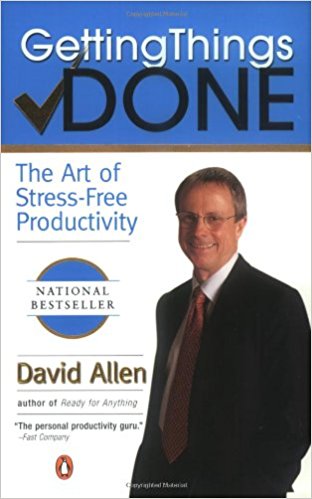Humans were not made to spend 12 hours in the office, slouched on their computers, and mindlessly going home to repeat the same exact routine the next morning.
Weekends are the only thing they look forward to, and even those can be filled with stress in preparation for the upcoming Monday.
You don’t have to live this way. Some ways are backed by science and studies that show that you can be more productive if you use them in your life. And not only those, but you can actually for once leave the office early!
Before we even get started with our 11 tricks to help you become super productive and spend less time in the end, we want to advise you to begin with seizing the morning!
This means trying to change the time you wake up and setting that alarm a little earlier. This will do wonders for your productivity. Even if you spend that extra time working out or relaxing, you’re starting your day off on the right foot.
Now that the tone is set for an awesome productive day, you’re ready for our 11 tricks! Let’s get started!

Getting Things Done
by David Allen
⏱ 13 minutes reading time
🎧 Audio version available
Utilize Your Downtime at Work
Maybe your boss doesn’t know this, but many of the employees end up doing a lot of nothing while clocked in. Little do they know that his downtime has the value of gold. This is the time to be productive. Studies have shown that average employees only work over an eight-hour workday– productively– for about three hours of them.
Before you try out this tip, know what you can and can’t do while on the clock so that you don’t risk your job. Now, how to use your downtime? Successful people have described using their free time at work to trade stocks or even work on other business ventures. If you do this right, if you’re efficient with your time, you can finish your original workload and then start on your side hustle.
No Multitasking
This isn’t being redundant to the previous trick. Schedule time for a specific task, and when you’re done with it, you can move on to another. Often, multitasking hurts the team.
It’s taking up your energy and attention and not allowing you to do individual tasks justice. So roll up your sleeves, settle on one task, and move on when you’re done. One task after another, and you’ll find that you may even have time to spare and get to go home early!
Don’t Schedule Meetings Late in the Day
Listen carefully, for this may be one of the essential tips we have today! To spend less time at the office and get home in time for dinner, one of the first things you need to integrate into your life is the policy of avoiding scheduling meetings late in the day.
Meetings almost always run late. You should be spending the end of your day finishing up the work for the day. If possible, try not to schedule meetings any time after 4 pm.
The 80/20 Rule
We can credit Brian Tracy, the author of “The New Psychology of Achievement,” explaining this concept. The Pareto Principle, also known as the 80/20 rule, says that 20% of activities will account for 80% of results.
Now, what does this mean? It means that if you apply the Pareto Principle to your work, you’ll find yourself cutting back on doing work that doesn’t contribute to your productivity. This also means reducing email time and not taking on non-value-additive work.
Email Filters Are Your Best Friend
Leaning more towards the productive and efficient side, our next tip is related to the hours upon hours a month we waste on checking email.
Setting up an email-filter allows you to sort your email by the sender and basically by your preference. You’ll notice a dramatic decrease in the time you spend sorting through unimportant messages.
Schedule Something Right After Work
If you want a motive to leave the office and spend more time outside of it, then consider scheduling an activity that makes you leave work at a regular time every day. This will also be a great incentive to have you finishing up tasks faster!
Have a Purpose
What if we told you that working 12-hour shifts was coming in the way of your being productive? You can dramatically do better by cutting back on your hours. Trust us. You’ll be able to get more done!
Our brains aren’t programmed to work 8 to 12 hours straight. So what should we do? Well, think of work as a kind of race– or a sprint in a marathon. If you have a task, set a half-hour timer or hour-long timers, avoid all distractions, and allow yourself to work until the timer goes off.
This makes you more aware of the time, as well as forces you to become more efficient. And hey, after the timers go off, reward yourself with a break.
We can call it “time boxing” your work.
When you first start applying this method, you may not find your task done within the allotted time, but you’ll grow more efficient over time. By deciding how much time you’ll spend on a specific task and truly sticking to it, you’re training your mind to work faster and smarter.
And if you end up not finishing the work in the allotted time, forgive yourself. Because you know what? Your focus has increased, and you’re more aware if you’re unnecessarily wasting time.
Work Out of the Office
Take the advice to spend less time at the office literally, but not too much. Several studies, including a Stanford study, have shown that people are actually more productive when they work outside the office.
And in this day and age, working from home has never been more normalized or popular. Unless you have to be at the office physically, then consider asking your boss for permission to switch locations every now and then.
Improve Communication With Your Coworkers
Productivity in the workplace doesn’t rely solely on you. Your interactions with your boss and coworkers affect you. Many workplaces found out that since changing their primary sources of communications– which were mostly email, text, and Google chat, their operation grew drastically speedier.
When these are the only communication methods, you’re losing time, entire conversations, and details this way.
Now, we have more modern solutions– although old fashioned conversations work just fine. Programs like “Slack” allow you to create channels tailored to a company’s specific needs and start ongoing discussions where you can search through for past details in the same thread or place.
Checklists, Checklists, Checklists– and Templates
For our #2 tip, here’s this incredibly useful method anyone can apply! Checklists and templates may seem tedious, but they do wonders for your schedule. Knowing what you want and your objective speeds up your overall process.
There’s an abundance of not only checklists but templates that allow you to put together presentations, meeting agendas, and weekly reports.
And some checklists help you plan by the week or plan one on one meetings and repeated activities. Both allow you to do a good job in less time. The time you spend trying to remember if you forgot to do something or trying to decide the next step on the agenda is cut down, allowing you more freedom.
You can look for fancy and detailed checklists and templates, but even a simple Word document will do. Plus, ticking off a finished item from a checklist never ceases to be not satisfying and motivational.
Say “No”
For our last and probably most important piece of advice, we’re going to teach you how to say “no.”
There’s a stigma around saying “no” in the workplace, but the truth is when your coworkers call you in the middle of the night, or your boss asks you to take on an extra project impossibly, you can say “no.” Our goal is to spend less time at the office, not more. And this will make your current project and task your ultimate focus.
Saying “no” in the workplace can be a little daunting at first. You start by understanding your value and what you value. Then you start defining your goals and objectives, and expectations. If someone drops something extra on your place, and it doesn’t fit, then you know it’s time to say “no.”
You’ll find yourself becoming more productive because you have allowed yourself to finish your projects. You have also carved out time out of the office because you’re not stuck doing additional things you agreed to just because, under pressure, you felt like you had to agree to appease that person.
What Is Snapreads?

With the Snapreads app, you get the key insights from the best nonfiction books in minutes, not hours or days. Our experts transform these books into quick, memorable, easy-to-understand insights you can read when you have the time or listen to them on the go.


